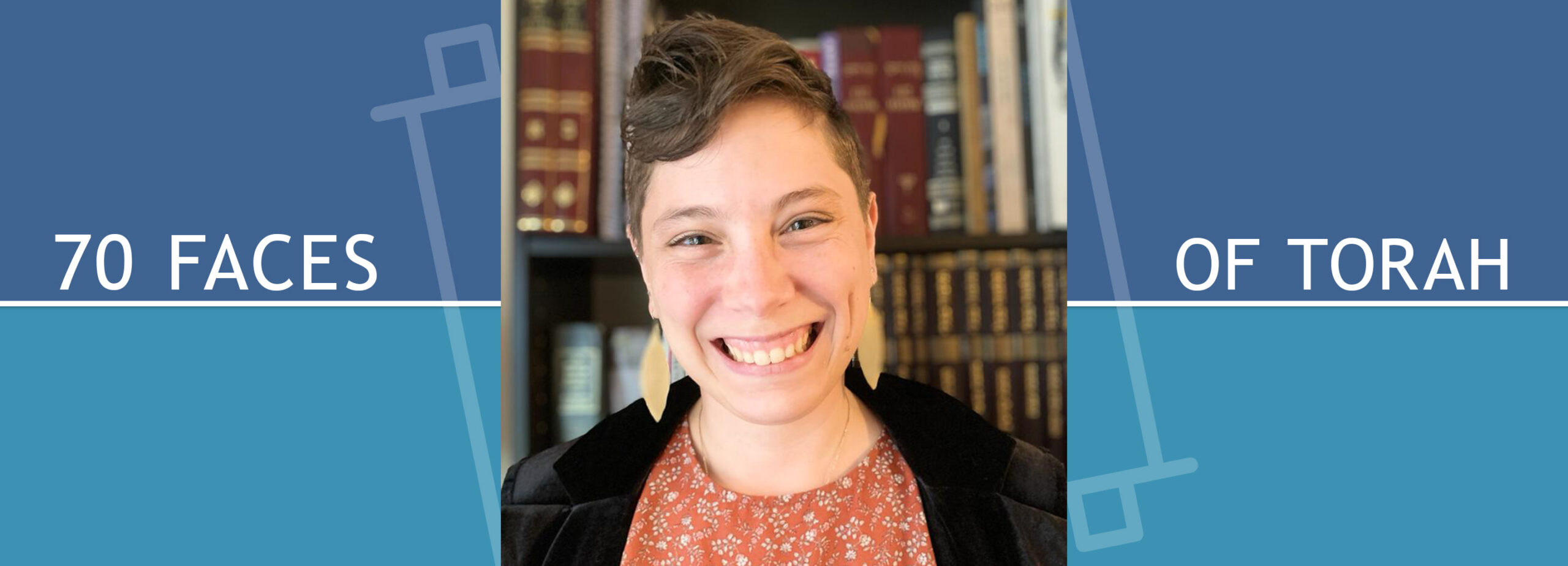Community Blog Leading with Love

Parashat Beshalach (Exodus 13:17-17:16)
When I first learned the meaning of the words to the popular children’s song “Ring Around the Rosie,” I was horrified. I knew it as a fun little song, sung by happy kids skipping in a circle. Then, I read that the words—“Ring-around-the-rosie/A pocket-full of posies/Ashes, ashes/We all fall down”—are about the bubonic plague. The happy tune belied its deeper and darker meaning.
Shirat HaYam, the Song of the Sea, is similarly complex. In our Shacharit (morning) service, I often sing the words with enthusiasm, focusing on the awe of seeing the sea split and the joy of being set free. But like “Ring Around the Rosie,” Shirat HaYam isn’t all joy and delight.
In Parashat Beshalach, the Israelites stand on the shore, look out at the drowning Egyptians, and sing of destruction: “The deeps covered them; They went down into the depths like a stone…The peoples hear, they tremble; Agony grips the dwellers in Philistia. Now are the clans of Edom dismayed; The tribes of Moab—trembling grips them; All the dwellers in Canaan are aghast.”
I look at the lyrics of Shirat HaYam, recorded in Parashat Beshalach, and I think: Why?! Why did the Israelites sing these words, at this moment? The Israelites saw the Egyptians subjected to plagues in Egypt, but they didn’t burst into song then.
Dr. Aviva Zornberg suggests that Shirat HaYam was a song motivated by sheer terror. As Zornberg puts it, “Terror, anguish, the knowledge that their lives tremble on the verge—these are the modes in which the Sages convey the experience of those ominous corridors.” Zornberg writes that at the crossing of the sea, “Rather than rejoice at their enemies’ pain, [the Israelites] see themselves mirrored in it” (Zornberg, 214). Zornberg refers to their physical vulnerability, but I wonder if the Israelites saw themselves mirrored in the Egyptians’ mental vulnerability as well.
They see Pharaoh and his people and their chariots. They see not just this single oppressor but this nation of oppressors who, when faced over and over again with the opportunity to let the Israelites go, did not change their minds. They see this and they think:
We are mirrored in them.
We are not separate from them.
We too could become the oppressors.
The Israelites witness the Egyptians’ struggle, and they sing to convey their fear of becoming the very people that oppressed them. They do not sing solely of the Egyptians’ demise, but invoke images of God’s love and mercy:
נָחִיתָ בְחַסְדְּךָ עַם־זוּ גָּאָלְתָּ נֵהַלְתָּ בְעָזְּךָ אֶל־נְוֵה קָדְשֶׁךָ׃
In Your love You lead the people You redeemed; in Your strength You guide them to Your holy abode (Exodus 15:13).
When they sing this line, the Israelites are no longer in Egypt; they are now endowed with the ability to make their own choices and to lead. The 13th century commentator Chizkuni points out that נָחִיתָ (you guide) נֵהַלְתָּ (you lead) are both written in the future tense. I wonder if perhaps this is reflective of the Israelites’ vision for the future. With their newfound freedom, the Israelites commit to a future of embracing and emulating a God of love. They sing of the drowning of the Egyptians in the past tense (e.g. Exodus 15:4), putting this in the rearview mirror and hoping that they can be better than their enemies.
If the continual legacy of Shmot is that we, “shall not wrong a stranger or oppress them, for we were strangers in the land of Egypt,” (Exodus 22:21), then Shirat HaYam is the deep, musical cry that expresses this. Shirat HaYam is the moment when the Israelites say, “We have been oppressed, and now we are free, and we will use that freedom for good.”
The gorier words of Shirat HaYam belie its fear-filled and loving undertones. It is not a song that conveys one thing, but a song of awe, hope, and vision. With its words now embedded in our daily liturgy, we can carry on the Israelites’ commitment and promise: May we not become the oppressors that we fight. May we not let power get the best of us. And may we always, always lead with love.
Please email the author if you would like to provide feedback.
Heather Renetzky is a shana dalet Hebrew College rabbinical student. She is a firm believer in the healing power of deep listening, trees, and homemade chocolate chip cookies.

